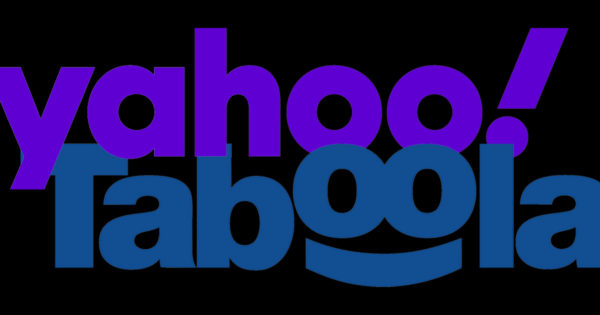Yahoo entered into an agreement to acquire a roughly 25% stake in Taboola, the companies announced yesterday. The deal will make Yahoo the content recommendation ad-tech firm’s largest shareholder and grant Yahoo a board seat.
While there are benefits for both companies under the terms, this more unique deal is characteristic of an uncertain economic climate.
Under the terms of the deal, Taboola will exclusively power Yahoo’s native advertising for 30 years, a staggering length given the fast-paced nature of digital advertising (30 years ago, web and mobile advertising didn’t exist).
“This is the first example of creative dealmaking in such a challenging environment,” said Harry Kargman, CEO of ad-tech firm Kargo.
The deal’s structure is highly unusual for ad-tech M&A, several industry sources told Adweek. It presents a new playbook for dealmaking as the economy enters a potential recession, with liquidity-conscious buyers less willing to shell out cash to buy 100% of a company, and sellers not wanting to settle for a below-market price, while securing access to data rights.
Taboola’s core business helps publishers earn money by peppering enticing links within their web pages. If a user clicks one of those links and is served an ad, publishers earn money via a revenue share. Publishers can also advertise via Taboola to drive traffic to their sites. Taboola claims its ad network comprises 500 million daily active users.
As a digital publisher, Yahoo has an audience of 900 million monthly active users, and it operates its own ad-tech business. The companies told the New York Times that the deal is expected to eventually generate $1 billion in annual revenue.
An opportunity for both
Since late last year, Yahoo has been under the ownership of Apollo, a private equity firm skilled at finding unique pockets of value in the companies it acquires, said Stephen Master, an ad-tech investor who serves as principal at private equity firm GTCR.
While Apollo’s plan for Yahoo’s existing native advertising business is not completely clear, Apollo may have found it more efficient to outsource native advertising to Taboola, Master said.
“Before, some gal or guy was selling ads to advertisers. They were paying that person commission. They had to have ad ops,” Master said. “I can pay 20 cents to Taboola, or I can pay all these people.”
Yahoo did not respond to a request for comment.
Effective native advertising requires successful creative execution and tech optimization, a tricky problem Taboola has mastered, said Ari Paparo, CEO of ad-tech media company Marketecture Media.
“It’s much more of an outsourcing story for Yahoo,” he said.
For Taboola, winning Yahoo’s audience is a prize, especially given the relatively mature content recommendation space, Paparo said.
“Outbrain and Taboola are locked in a winner-takes-all game. Every dollar one of them gets is a dollar the other one loses,” Paparo said. “[Yahoo] is a rare prize. To be able to grow that inorganically is a big deal.”
An already mature content rec market
Yahoo may be a prize, but if it’s a rare one, that could spell trouble for the growth of the content recommendation industry.
While content recommendation brings more consistent revenue than banner ads, Master said, ad-tech vendors that service digital display can more easily transition into growing media sectors like connected TV, a pivot that is trickier for companies like Taboola.
Still, Taboola’s CEO Adam Singolda said that there is still plenty of growth in the space.
“When you look at what goes into native advertising, you have e-commerce, video, and performance advertising,” Singolda said. “These are rocketship growth engines in comparison to other types of traditional ad formats.”
Another tailwind for Taboola is cookie deprecation. The company’s technology is not particularly reliant on third-party trackers, sources said, and their demise makes the contextual solutions Taboola provides more attractive.
“As a leader in contextual targeting, we believe Taboola is well positioned to grow its share of the $78 billion-plus open web market, as we anticipate the future removal of third-party cookies will drive contextual adoption,” wrote bankers at Oppenheimer in a note published yesterday.
So far, investors seem not entirely convinced of the growth story.
While revenue has grown throughout the year, its stock has lost nearly 300% of its value since going public in June 2021. The market reaction stemmed from generally less favorable market conditions and occasionally delivering guidance that missed analyst estimates, Master said.
Taboola’s stock did rise 43% on news of the Yahoo deal yesterday, closing at $2.64.
Source link





